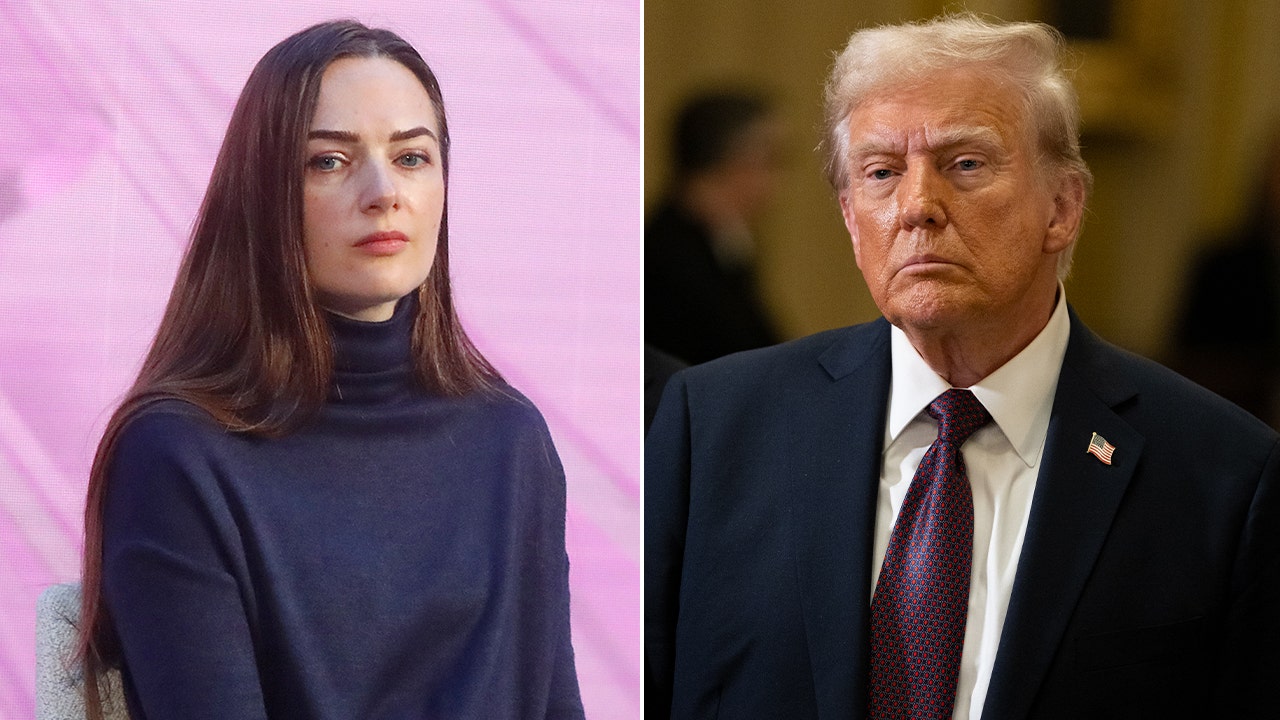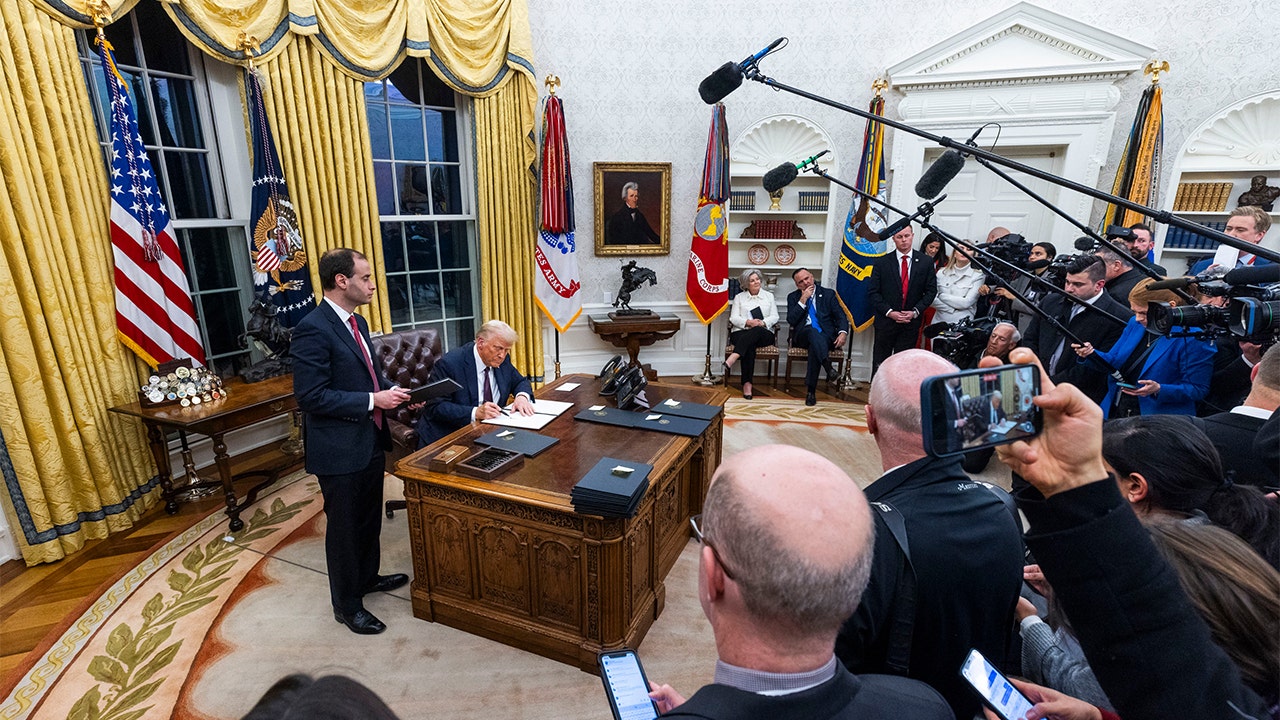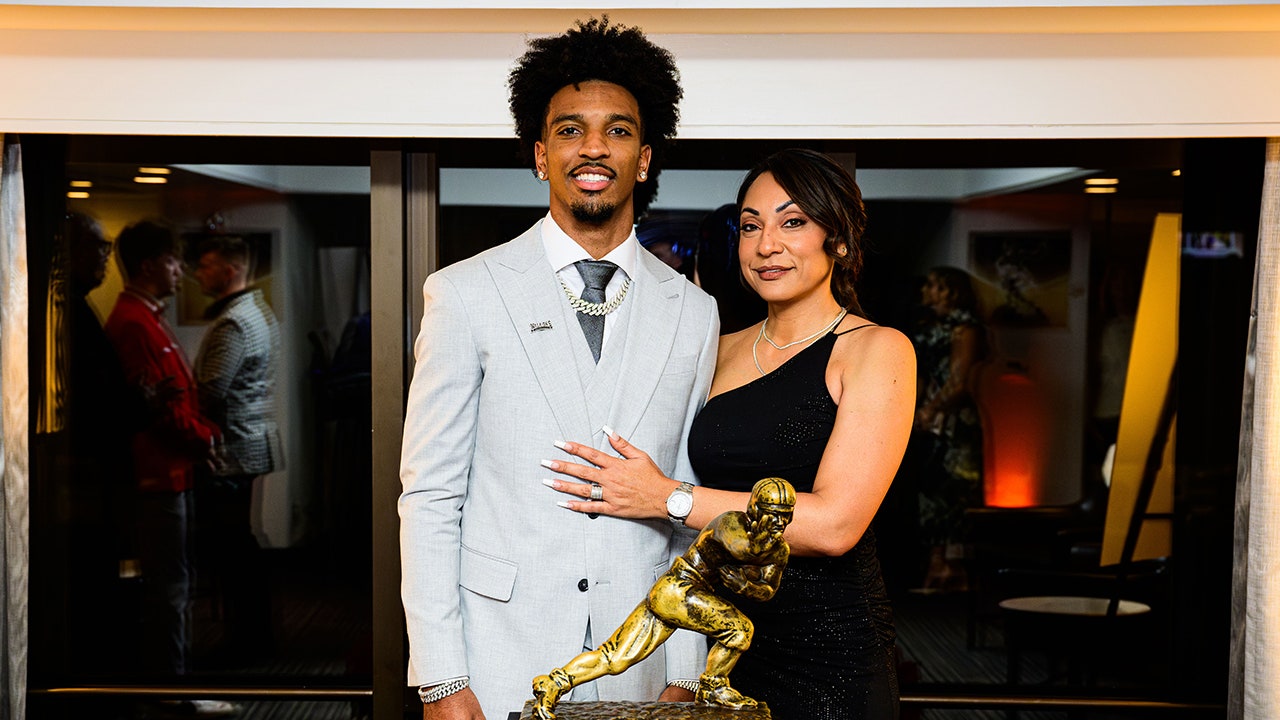Lifestyle
Northern Soul is thriving across the UK thanks to Gen Z looking to dance

Northern Soul, the up-tempo Black American music made during the ’60s and ’70s, is experiencing a resurgence. Will Foot and Lewis Henderson from the Deptford Northern Soul Club have brought this underground subgenre to venues across the United Kingdom, attracting a Gen Z audience looking to dance.
Greta Kaur-Taylor
hide caption
toggle caption
Greta Kaur-Taylor

Northern Soul, the up-tempo Black American music made during the ’60s and ’70s, is experiencing a resurgence. Will Foot and Lewis Henderson from the Deptford Northern Soul Club have brought this underground subgenre to venues across the United Kingdom, attracting a Gen Z audience looking to dance.
Greta Kaur-Taylor
LONDON – It’s 1964. No, wait. It’s 2023.
The music blasting through the speakers at this dark and sticky club in East London is 1964’s “Tainted Love” by American artist Gloria Jones.
You may have never heard of Jones, but you have listened to Soft Cell’s 1981 hit cover of the same song. If Aretha Franklin is the Queen of Soul, Jones is the Queen of Northern Soul. There’s an important distinction here.
YouTube
“Northern Soul is inherently up-tempo, Black American music that never really made it in America,” says Lewis Henderson, who makes up one half of the Deptford Northern Soul Club (DNSC), the duo headlining this sold-out event at the Moth Club in Hackney.
“It’s like B music,” Henderson says, “but you know, like this kind of fast up-tempo music that people didn’t want to listen to in their homes.”
For more than seven years, Henderson and his musical partner Will Foot have brought this underground subgenre to venues across the United Kingdom, attracting a Gen Z audience looking to dance. But as packed and energetic as this dancefloor is, the story of Northern Soul hardly starts with this generation.

Will Foot (left) and Lewis Henderson, of Deptford Northern Soul Club.
Deptford Northern Soul Club
hide caption
toggle caption
Deptford Northern Soul Club

Will Foot (left) and Lewis Henderson, of Deptford Northern Soul Club.
Deptford Northern Soul Club
It dates back to the 1960s when most of these records were made at places like Motown in Detroit or Stax Records in Memphis, Tenn.
“If a song didn’t make the cut of Motown or was scrapped, they would often press 500 demo copies to send out to test audiences,” says 29-year-old Will Foot, the other half of DNSC.
He says those demos were destined to live in obscurity if it wasn’t for an obsessive group of British music collectors.
“There’s stories of DJs flying over to America and going to places like Miami and Chicago and Detroit and just going through warehouses of records that dealers were selling on and didn’t really know what they have,” Foot says. At which point, “they would bring them back and make them hits in the UK.”
Hits not just anywhere in the UK; Northern Soul’s success came from cities and clubs across northern England, where the music resonated with the region’s working class, such as the legendary Northern Soul DJ Colin Curtis.
“In a nutshell, this was working-class people finding an exciting music form and finding clubs that were doing this,” says 71-year-old Curtis, who still performs across the UK.
Curtis says a London-based music journalist and record shop owner named Dave Godin coined the term “Northern Soul” in the late 60s after receiving a strew of visitors from the north coming into his shop looking for rare offbeat – and up-tempo – soul records.
The up-tempo made these records flourish in clubs across the north – songs that were rediscovered and recontextualized by a scene of young and energetic working-class people looking for a weekend escape from the drudge and drear of what was primarily industrial factory work.
Clubs like the Twisted Wheel in Manchester and the Golden Torch in Stoke-on-Trent quickly gained reputations for hosting Northern Soul all-nighters, with people coming in on buses from across the UK to dance for 24 hours straight.
“There’s folk spinning, running up the walls, flipping over, landing in box splits,” says Keb Darge, a famously mouthy Scottish taekwondo master turned dancer and DJ who quickly gained a reputation on these dance floors.

A souvenir woven patch from the last night at the Wigan Casino, which played Northern Soul at all night dances during the ’70s and early ’80s.
Ker Robertson/Getty Images
hide caption
toggle caption
Ker Robertson/Getty Images

A souvenir woven patch from the last night at the Wigan Casino, which played Northern Soul at all night dances during the ’70s and early ’80s.
Ker Robertson/Getty Images
Darge’s favorite venue was an old ballroom outside of Manchester called Wigan Casino, which in its heyday was welcoming sold-out crowds of over 2,000 people every weekend.
“There was no alcohol. There was no chatting to girls or dancing with girls,” Darge says. “You were there to dance to the records…and if Raquel Welch had walked up to me when I was dancing, do you fancy coming back to my hill? f*** off, Raquel. I’m dancing. Don’t be stupid.”
Then, there was the music itself. Dozens of American artists whose careers never took off at home were now the stars of Northern Soul – unbeknownst to many of them.
“Some of them didn’t even remember they made a record,” says Darge.
That was the case for Johnny Baker, whose 1973 single “Shy Guy” became a Northern Soul hit. Producers in the UK struggled to track him down to pay royalties. When they finally did find Baker, Darge says he was working at a gas station in New Jersey.
Rickey Calloway, a Florida-based artist who gained a reputation for his James Brown-like vocals, was working as a janitor in a school when he learned about his success on the other side of the pond. Calloway ended up relaunching his career in the UK and Europe.
Others, like Charles Simmons, never saw their success during their lifetime.
“He was a car mechanic and he died in a pauper’s grave,” says Lewis Henderson of DNSC.
Henderson credits the uplifting lyrics to Simmons’ single “Save the World” for sending a message of coming together during difficult times.
“A lot of [Northern Soul] songs are sending this message of ‘we got sick together and we can fight this, and we can build a better like world.’”
YouTube
That message still resonates with people today, says Henderson, who believes the genre’s more recent popularity with Gen Z comes at least in part from its convergence with movements like Black Lives Matter.
“When people listen to a record that was recorded in the 60s with the same message, it resonates now because they understand the context of it,” says Henderson.
Others say they appreciate the movement’s origins as something born out of counterculture.
“There’s no sense of conformity,” says 24-year-old Alex Standish. “Everyone turns up in crazy outfits and they dance like, in a way which is completely uninhibited.”
Standish says he sees Northern Soul as an escape – and it feels very freeing to be a part of what some thought to be a temporary underground movement.

People dance the night away at the Moth Club in Hackney.
Lewis Henderson
hide caption
toggle caption
Lewis Henderson

People dance the night away at the Moth Club in Hackney.
Lewis Henderson

Lifestyle
The Indian Jeweler Bhagat Opens a Boutique in London

Mr. Bhagat and his two brothers (who are no longer involved) established the business in 1991. He had been inspired to design during a trip to Rome in which, he said, he fell in love with the creations in the windows of Bulgari’s Via Condotti store. As a result, his early designs had a European aesthetic, albeit in yellow gold and colored gems, rather than the heavy gold settings and irregularly cut stones of traditional Indian jewelry.
At the brand’s beginning, Mr. Bhagat’s insistence on creating unique pieces of his own design was a brave one, said Jay, 35. In India’s jewelry-obsessed culture, jewelers commonly make pieces that are tailored to the client’s order. “In India,” Jay said, “everything is made to measure, everything is customizable.”
It was a few years later, when Mr. Bhagat started traveling around India, that he realized his jewelry needed to pay homage to the country’s rich heritage but also move its story forward. “I come from a generation that wanted to show India as a modern India,” he said.
Rahul Kadakia, the international head of jewelry for Christie’s, said Bhagat’s achievements have been impressive considering that India initially was not associated with contemporary high jewelry. “He was the first Indian jeweler to be on the cover of Christie’s catalog, and that was 20 years ago,” he said.
“He appreciates his Indian roots and also the value of Art Deco design and architecture,” Mr. Kadakia said, noting that was what initially set Mr. Bhagat’s work apart and is what continues to make it distinctive. “He combines the two with such fluidity. The stones are floating in their settings, and all you see is the shining light of precious stones.”
For Mr. Bhagat and his sons, their ultimate aim is to heighten the wearer’s beauty, rather than overshadow it.
Lifestyle
Jennifer Lopez Performs Her Song 'All I Have' at Sundance Party
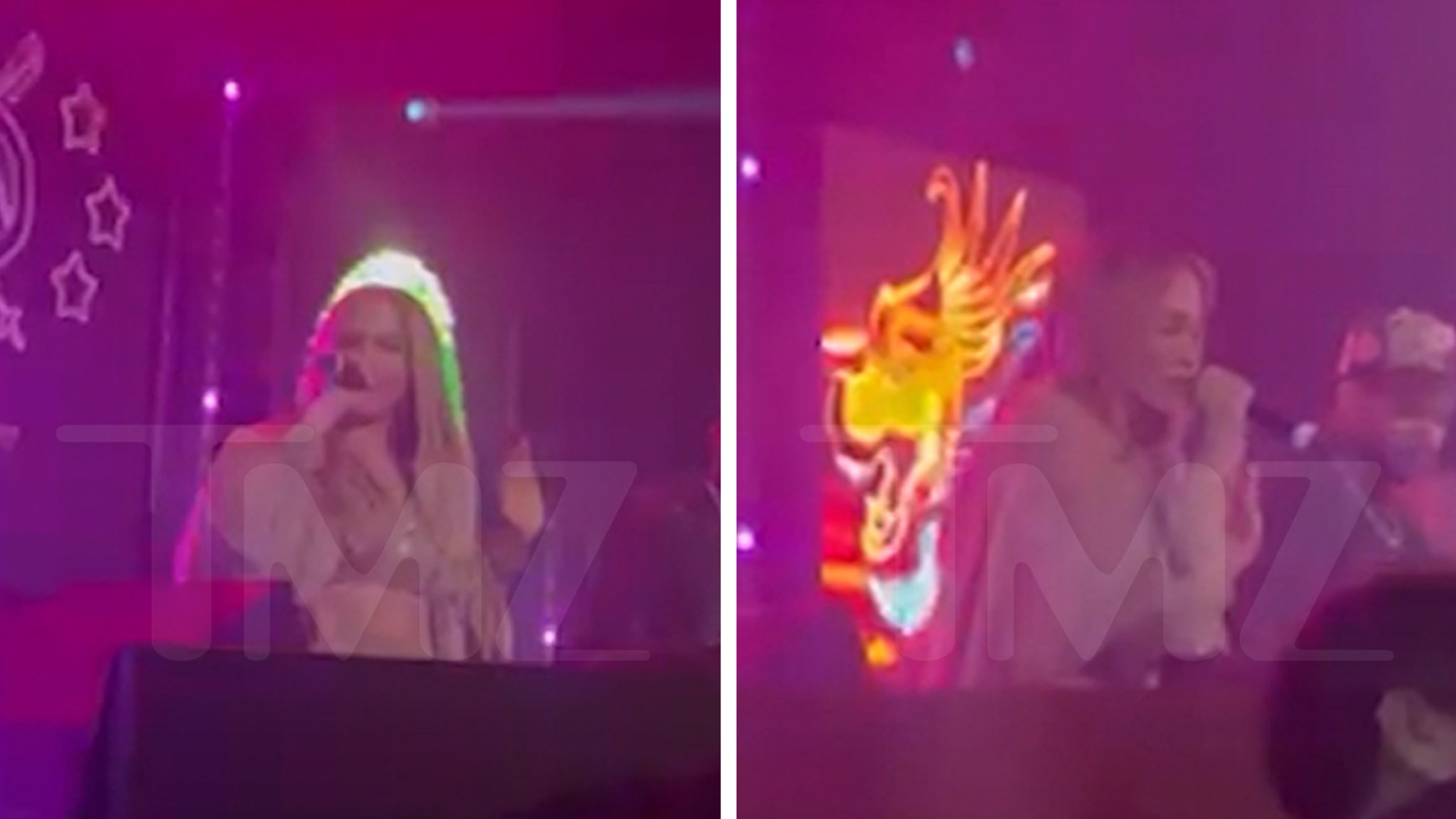
JENNIFER LOPEZ
IMPROMPTU PERFORMANCE AT SUNDANCE
Published
TMZ.com
Jennifer Lopez surprised partygoers in Utah over the weekend with an impromptu performance of one of her longtime hit songs.
J Lo was at Tao in Park City on Saturday night where she surprised clubgoers by getting behind the DJ booth and giving fans a surprise performance of her 2002 single, “All I Have.”
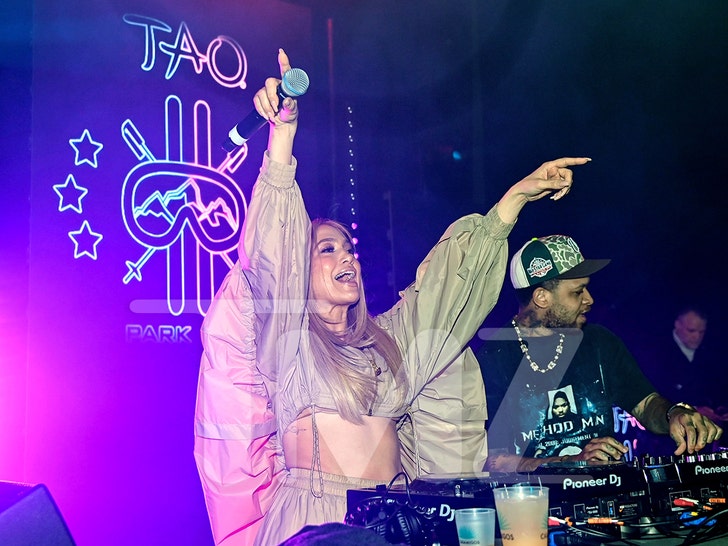
The singer, who’s in town for the Sundance Film Festival, posted several snaps on her Instagram from the club where she partied the night away sipping cocktails and dancing with her best friend, Stevie MacKey.

Lopez has been keeping busy lately. She made the flight from Los Angeles to Park City after stepping out to celebrate her manager Benny Medina‘s birthday in Beverly Hills on Friday night.
We broke the story last week … J Lo may have found an off the market $20 million home home in Brentwood she may purchase.
Lifestyle
To ghost or not to ghost? We want to know about the dating experiences that haunt you

We want to hear from you.
NPR
hide caption
toggle caption
NPR

We want to hear from you.
NPR
It’s nearly here again – Valentine’s Day. The holiday of love. But the thing about love is that it doesn’t always work out the way you intend.
There are the awkward first dates, swiping endlessly through dating apps, conversations about keeping it casual versus exclusive, and of course – calling it quits.
One popular (albeit controversial) way to end things with someone? Ghosting.
Added to Merriam Webster’s dictionary in February 2017 – to ghost is the “phenomenon of leaving a relationship of some kind by abruptly ending all contact with the other person, and especially electronic contact, like texts, emails, and chats.”
So, yeah. Poof! It’s has become a common occurrence in the world of dating. Whether you’ve been the “ghoster” or the “ghostee” — All Things Considered wants to hear about your ghosting experiences.
Fill out this form and an NPR producer may reach out to you. Your answers could be used on air or online.
-
/cdn.vox-cdn.com/uploads/chorus_asset/file/25835602/Switch_DonkeyKongCountryReturnsHD_scrn_19.png)
/cdn.vox-cdn.com/uploads/chorus_asset/file/25835602/Switch_DonkeyKongCountryReturnsHD_scrn_19.png) Technology1 week ago
Technology1 week agoNintendo omits original Donkey Kong Country Returns team from the remaster’s credits
-

 Culture1 week ago
Culture1 week agoAmerican men can’t win Olympic cross-country skiing medals — or can they?
-

 Education1 week ago
Education1 week agoWhat Happened to Enrollment at Top Colleges After Affirmative Action Ended
-

 Culture6 days ago
Culture6 days agoBook Review: ‘Somewhere Toward Freedom,’ by Bennett Parten
-

 Politics1 week ago
Politics1 week agoU.S. Reveals Once-Secret Support for Ukraine’s Drone Industry
-

 World1 week ago
World1 week agoChrystia Freeland, Justin Trudeau’s ‘Minister of Everything,’ Enters Race to Replace Him
-

 Politics1 week ago
Politics1 week agoJohnson Installs Crawford on Intelligence Panel, Pulling It Closer to Trump
-

 News1 week ago
News1 week agoDonation Scams Compound Suffering for Wildfire Victims
/cdn.vox-cdn.com/uploads/chorus_asset/file/23951361/STK072_VRG_Illo_N_Barclay_7_netflix.jpg)
